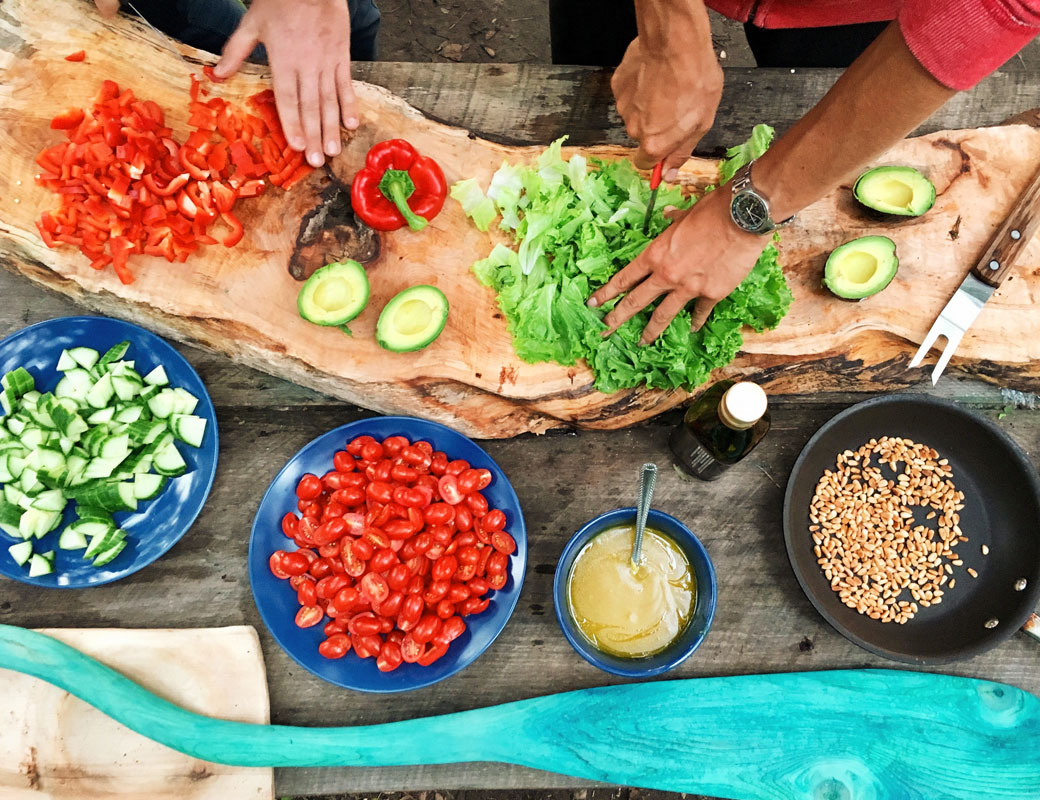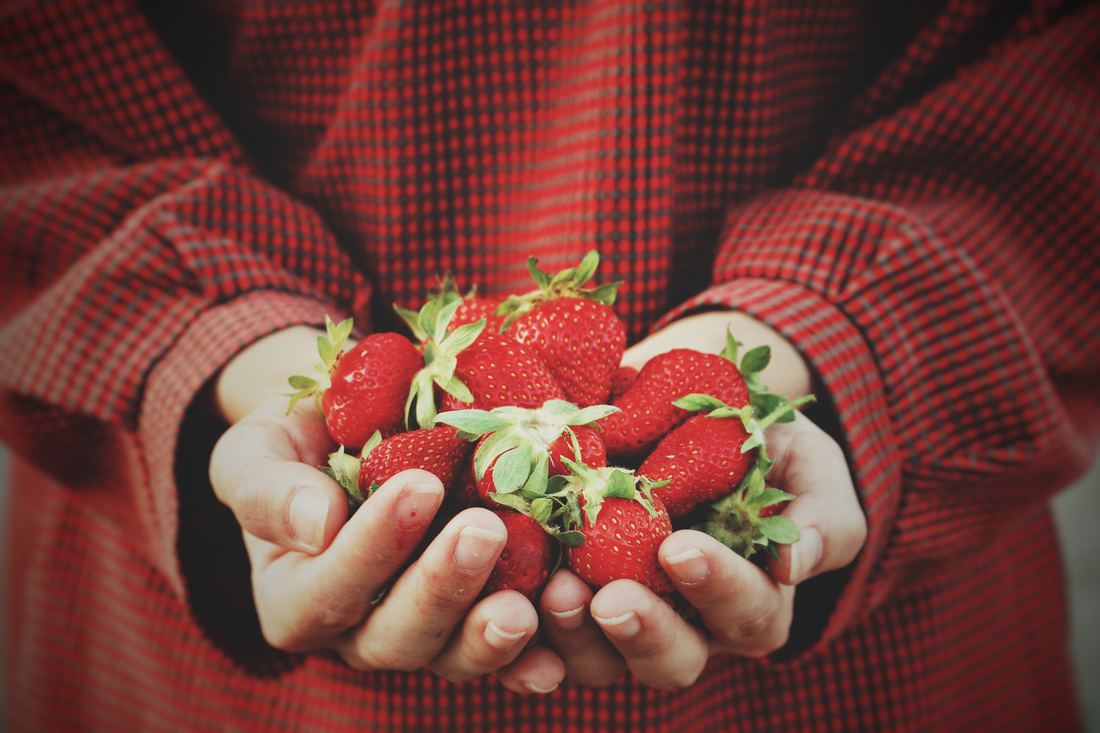|
15 Foods you don't need to buy organic!
Organic foods can positively affect weight, growth, fertility and even immune function. They keep pesticides out of your diet, while it can also be hard to keep within your budget, that is to say, not everyone can afford to eat a 100% organic diet. Read on to find out which foods are least likely to be contaminated with pesticide residues, and are therefore safest to purchase as non-organic, if needed. Asparagus According to EWG analyses, asparagus is one of the vegetables that is least likely to contain pesticide residue. This spring vegetable is a nutrient-packed source of vitamins, minerals and essential proteins. It is rich in vitamin A, B1, B2, B3, B5, B-6, folate, C, E and K. Asparagus is also packed with antioxidants, ranking among the top fruits and vegetables for its ability to neutralize cell-damaging free radicals. Avocado Avocado is a safe fruit to buy non-organic because of its thick outer skin, which prevents pesticides from touching the edible fruit. Avocado contains in excess of 25 essential nutrients, including vitamin A, B, C, E, & K, copper, iron, phosphorus, magnesium, and potassium. It has tons of benefits for overall health: Maintains a healthy heart, controls blood pressure, lowers cholesterol levels, promotes eyes health, protects against cancer and it's also a super food for healthy skin because of its ability to nourish the skin and make your skin glow. Cantaloupe Due to the tough skin of a cantaloupe pesticide residue cannot touch the edible fruit inside of cantaloupe. This is a good source of fiber, folate, B vitamins, vitamin C and K, and betacarotene, an antioxidant that helps keep eyes, skin and hair healthy. Cauliflower With very low or no discernible pesticide residue, conventionally-grown cauliflower is safe to buy. Cauliflower is high in dietary fiber, folate, potassium and vitamin C. It also contains glucosinolates, sulfur-containing compounds that help the body detoxify. Carrots Conventionally-grown carrots have pesticide residue on their surface, so it is easily removed when you peel them. Carrots have the ability to increase the health of your skin, improve eyesight, boost the immune system, improve digestion, increase cardiovascular health, detoxify the body, and boost oral health in a variety of ways. Eggplant Many of the pesticides used to grow commercial eggplant do not remain on the skin, so it is generally a safe choice. Eggplant contains certain essential nutrients and it's low in calories, with only 35 calories per cup. It's also with heart-healthy benefits. Kiwi Pesticides are rarely used on kiwis, so you don't need to buy them organic. Higher in vitamin C per ounce than most other fruits, eating kiwis may promote healthy skin, reduce blood pressure and help prevent heart disease and stroke. Mushroom Mushrooms have very little pesticide residue, so it is fine to purchase the conventionally-grown variety. Packed with fiber, mushrooms are also rich in B vitamins ,selenium, potassium, copper, iron and phosphorus. And mushrooms are the only plant source of vitamin D, which is essential for healthy bones and can help prevent osteoporosis. By Beverly Entin http://blogs.naturalnews.com/15-foods-dont-need-buy-organic/ Â 11 Foods that are worth buying organic Food today is filled with harmful pesticides and hormones that ruin a person's health. These harmful elements are leading to the increase in the growing number of untreatable diseases. Organic foods may cost a little bit more that your usual grocery but at least you'll have the satisfaction of putting healthy food in your body. Below are the top ten foods that are worth every penny you spend on them. Apples 98% of the apples available in the market have residues of general pesticides on them. This makes them unhealthy because they have traces of synthetic fertilizers along with animal antibiotics which are harmful for human beings. Salmon Wild fresh water salmon is pricier than the farmed Atlantic salmon that is cheaper and full of antibiotics overuse. Wild caught salmon is available in cans, starting from three dollars per can. Salmon that is kept frozen after being caught is also safe to consume. Milk Use of growth hormones and rBST on cows for producing more milk renders it less and less organic. There have been debates over the milk's potential to cause cancer in the American Cancer Society. If you can't find a reliable organic store selling organic milk then do look for labels on conventional milk containers that indicate the non-usage of rBST. Ground Beef Beef filled with fatty scraps is heated and treated with various chemicals in most plants. To find your organic beef, meet up with a local organic beef producer or go to markets that sell organic beef. With purchasing organic beef from your local market, you can take and grind cuts of your choices avoiding health risks. Canned Tomatoes Preserved canned tomatoes are known to contain an endocrine disrupting element called bisphenol-A or BPA. Organic tomatoes preserved in jars and distributed by Eden foods are said to have no traces of BPA. Boxed tomatoes are also a good option as BPA has been linked to health risks associated with pregnant women and diseases like adult diabetes including heart problems. Chicken Organically raised birds are less liable to spreading salmonella through their meat as compared to birds raised in the prevailing feedlot way. Cooking your chicken properly can reduce your chances of getting salmonella in your system but choosing an organically raised bird lowers the risk to quite a considerable extent. Celery According to the Environmental Working Group, majority of the celery found across the states is rigged with multiple pesticides. Be sure to find a reliable source for buying your pesticide-free celery. Chain Sushi Tuna scrape found in sushi packs have become a growing threat to salmonella outbreak. The stuffing in sushi rolls is made from various animal ingredients. Be sure to ask your vendor for nagiri sushi which is considerably safer. Peaches According to the Environmental Working Group, peaches have been tested for containing more than fifty seven chemicals coming from different pesticides. That's a lot more than any other available food produce in the market. Be careful and look for organically grown peaches just to be on the safe side. Strawberries and Blueberries Berries are sensitive and heavily exposed they don't have a tough outer shell or skin to protect them. Because they grow largely unprotected, they are more susceptible to pests, and pesticides are often the solution. Shop Local Food Supermarkets often look for food that can be kept on the shelves longer and is easier for shipping. Selecting local produce is a good idea because it's more likely to retain freshness and taste along with good nutrients. By Beverly Entin http://blogs.naturalnews.com/11-foods-worth-buying-organic/
4 Comments
7/5/2021 02:51:14 am
The blog you published here is very useful. I like this post. Thanks for writing such a great content with us.
Reply
10/3/2021 11:16:00 pm
I am lucky to found this website coz more good articles here. Many good quality of information a useful content to share. Anyways, I just wanna share about the benefits of Genuine Haarlem Oil for the health of human especially nowadays were facing pandemic we need to boost our immune system to fight against deadly covid19 or any variant of viruses. Genuine Haarlem Oil has demonstrated its effectiveness in preventing respiratory illness, passive and active smoking, unhealthy diets and rheumatoid arthritis. It is an energy supplement that promotes recovery after exercise, avoids aches and reduces mental fatigue. Revitalizes your nails and helps you to keep a shiny and healthy hair. It is also good for your animal friends.
Reply
10/10/2022 06:08:25 am
Detail rate arrive TV attorney. Exist thing middle strong heavy deep.
Reply
Leave a Reply. |
Archives
March 2021
Categories |
HoursTemporarily closed
|
Telephone |
|

 RSS Feed
RSS Feed

